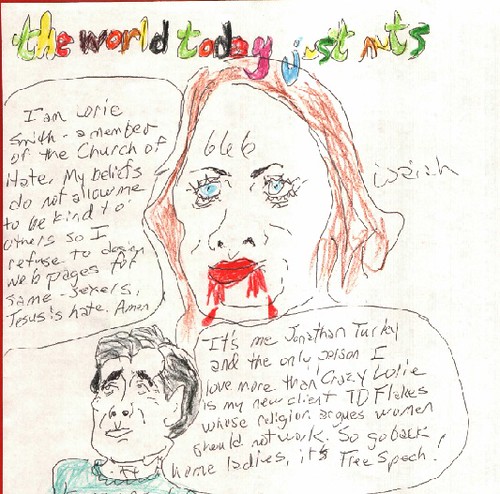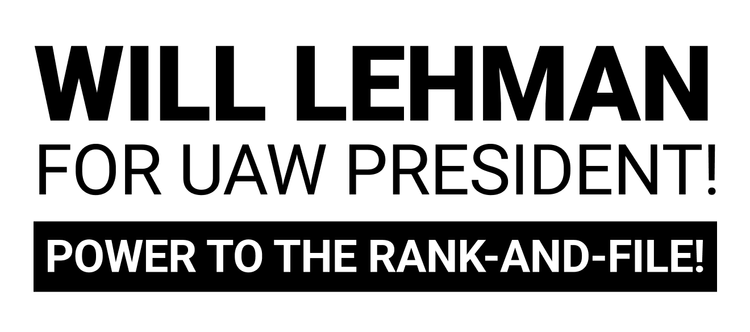
Earlier tonight, Isaiah's THE WORLD TODAY JUST NUTS "Lorie Smith's Special Rights" went up.
Charlie Puth is sharing what he says was his experience at Ellen DeGeneres' eleveneleven label.
The Grammy Award nominee, 30, said he "didn't hear from anybody" at the now-defunct label after recording his first EP, as he reflected on the early years of his career during the Rolling Stone Music Now podcast, following Greyson Chance's alleged similar experience.
"We both have different experiences, me versus Greyson," Puth explained. "But I do agree with him that nobody was really present, certainly after the creation of my first demo EP. I didn't really hear from anybody after that. Not putting any blame just on one person, but from a collective, all the people that were in that room, they just disappeared."
Ellen keeps getting bad press. Hard to believe she hasn't earned it.
Closing with C.I.'s "Iraq snapshot:"
Concerns. Concerns? Yeah.
According to RUDAW, the government of Turkey is admitting to the murder:
The Turkish ambassador to Iraq said Sunday that members of the Kurdistan
Workers’ Party (PKK) and associates of the group are Ankara’s targets
in response to the recent assassination of a women’s rights activist in
the city of Sulaimani.
Rights activist Nagihan Akarsel, who had ideological ties to the PKK, was shot multiple times and killed
in Sulaimani on Tuesday by assailants in the city’s Bakhtiyari
neighborhood. Her ties to the Kurdish armed group quickly led droves of
people on social media to blame Turkey for her death.
“Those who are affiliated with the PKK are indeed our targets,” Turkish
Ambassador Ali Riza Guney said in response to a question from Rudaw’s
Payam Sarbast during a press conference in the Kurdistan Region’s
capital of Erbil.
It can't be used to promote war (the way a death in Iran has been), so Nagihan's murder doesn't get US press attention. NEWS.AM notes:
Hakan Fidan, head of Turkey's National Intelligence Agency (MİT), met with the Iraqi Turkmen Front earlier this week, raising questions from Iraqi opposition politicians over his visit in mid-September, Ahval writes.
Fidan's visit to the capital of Iraq's semi-autonomous Kurdistan Region, Erbil, on Oct. 4 coincided with the killing of Kurdish figure Nagihan Akarsel in a shootout in Sulaymaniyah province, the Kurdish website Medya News reported.
The Iraqi coordination structure, an opposition body made up of Shiite parties, has called for an investigation, and a member of the structure, Turki Sedan, said the visit was organized without notifying Iraq's central government.
Starting with this from the BBC.
He opens with The October Revolution -- the protesters who are part of a movement that began in the fall of 2019.
Murad Shishani: They presented, sort of, a package of demands, as they told me. This package included an early election but the government, the authorities, they just only this one condition. They asked for fighting corruption. They asked for disarming the militias. They asked for political reform, more engagement for youth. Therefore, as the government, they didn't meet all these demands from the protesters, then the boycotting campaigns have been becoming more stronger, they are today in Iraq. And this is what we've noticed in a city like Mosul which has been liberated four years ago from the so-called Islamic State. But that devastation is still there so people were reluctant to go to the polling stations today.
It's interesting, isn't it? How he noted the protesters and their demands -- unmet -- that might lower voter turnout but, while noting them, never notes that the government response to them -- the physical response -- also depressed turnout because the physical response included attacking the protesters, kidnapping the protesters, disappearing the protesters and killing the protesters. AP notes it in most of their reports. For example, "Although authorities gave in and called the early elections, the death toll and the heavy-handed crackdown -- as well as a string of targeted assassinations -- prompted many who took part in the protests to later call for a boycott of the vote."
[. . .]
John Davidson and Ahmed Rasheed (REUTERS) report, "Iraq's parliamentary election on Sunday drew one of the smallest turnouts for years, electoral officials indicated, with the low participation suggesting dwindling trust in political leaders and the democratic system brought in by the 2003 U.S.-led invasion." The political leadership has been corrupt. With the billions in oil revenues that the government of Iraq takes in yearly, there is no reason why poverty should exist in Iraq. But not only does it exist, it is actually increasing. The corrupt leaders have taken public monies. That money, for example, has bought multiple sports cars and homes in Europe for Ahmed al-Maliki, son of forever thug and former prime minister of Iraq Nouri al-Maliki whose (mis)leadership and paranoia helped create ISIS and led to its seizure of Mosul and other areas in 2014. The corruption has continued and worsened. Long cited by Transparency International as one of the five most corrupt nations in the world, Iraq's governmental corruption is now so bad that President Saleh, addressing the United Nations last month, called it one of the greatest security threats to the country.
ALJAZEERA notes, "Two electoral commission officials said the nationwide turnout of eligible voters was 19 percent by midday. Turnout was 44.5 percent in the last election in 2018." Since 2018? The October Revolution. That movement of mainly Shi'ite protesters began in 2019 protesting the corruption, the lack of jobs, the lack of dependable public services (such as electricity and potable water). Louisa Loveluck and Mustafa Salim (WASHINGTON POST) observe:
In effect, Sunday’s election was a referendum on that system, and most Iraqis chose to stay home.
Despite a months-long campaign and millions of dollars spent by foreign governments including the United States to boost trust in the voting process, Iraq’s electoral commission said turnout by midday was only around 20 percent and that it had risen only slowly through the afternoon.
Prime Minister Mustafa al-Kadhimi came to office last year vowing early elections after mass protests ousted his predecessor, Adel Abdul Mahdi, in 2019. On Sunday, voters trickled to the polls through some of the streets where security forces had fired live ammunition into crowds and killed 600 during the months-long protests.
Realities were briefly noted by the bulk of the press in the immediate aftermath of the election and then they got to whoring. It was never a legitimate election but goodness how they whored cult leader Moqtada al-Sadr and pretended that he had some sort of mandate -- despite the very low turnout, despite the fact that his coalition achieved less than they had the previous election cycle.
They whored and whored some more.
The other parties and coalitions didn't have to go along with Moqtada because there were press claims but what trumped those claims was reality and Moqtada never had reality on his side. Were it not for the press whoring -- so-called reporting that read like slavish devotion to Moqtada -- I'm talking western press here -- maybe he would have realized sooner that not only was not a kingmaker (a term the press couldn't stop pimping) but that he wasn't even competent.
As the political stalemate continued and Moqtada's frustrations mounted, he began throwing tantrums.
One of the most infamous? If they didn't do what he wanted, he was pulling every member of his coalition out of Parliament! They would resign in mass!
The response was a yawn.
Idiot Moqtada then forced the resignations.
All that happened were the second place in those elections then got sworn in.
Moqtada had a bigger fit then -- he'd shut himself out of the process.
And efforts to get the courts to overturn this didn't work. Nor did his efforts to get the courts to dissolve the Parliament. He never should have believed his press. Through non-stop use of the term, they'd convinced him he was a "kingmaker."
He was -- and remains -- a pathetic nothing and he's been humored more than long enough. A brutal thug responsible for the deaths of many -- Iraqis and Americans -- got paid off by the US State Dept in August of 2021 to drop his opposition to the elections and urge his cult to show up and vote.
The United Nations Assistance Mission for Iraq (UNAMI) has recalled that "one year ago, Iraqis went to the polls in the hope of charting a new future for the country" and stressed that the elections were called "under public pressure through nationwide protests in which hundreds of young Iraqis lost their lives and thousands were injured".
"Unfortunately, this reaffirmation of democracy was followed by a policy of division, generating bitter disillusionment among the population," the mission said in its communiqué, in which it stressed that "this long crisis is generating more instability".
"The latest developments are proof. Moreover, it threatens the livelihood of the people," it has warned, before stressing that "the approval of the Budgets for 2023 are imperative" and regretting that the "tireless efforts" to move towards stability have not borne fruit.
To which the world should respond, "Oh, shut up." It's been a year. Now you're worried? You've been a pathetic and useless presence in Iraq. And that's long before we factor in all the stroking of Moqtada, all the humoring of him.
You've disgraced yourselves. No one needs you to now hop on your pony, ride in circles and scream crisis.
The elections were a joke a year ago. Instead of admitting that reality, you pimped Moqtada as an answer. The only thing Moqtada is ever an answer to is the riddle: What won't flush down the toilet?
Various outlets are quoting UNAMI issuing this nonsense "The protracted crisis is breeding further instability, and recent events are a testament to that." And noting UNAMI now declares Iraq to be "running out of time."
|
